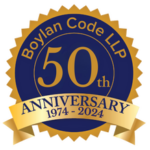Don’t Let Your Client’s Noncompliance With An Injunction Order Lead To A Motion For Contempt.
By David K. Hou, Esq.
The worst case scenario has happened and the court has imposed a TRO, or preliminary or permanent injunction against your client, enjoining it from continuing to use disputed intellectual property. So, what next – how do you counsel your client to comply with the injunction order to avoid a costly – and embarrassing – contempt motion? You cannot merely rely on your client to stop using the prohibited materials or mark. Courts commonly require a party to state under oath the extent to which it has complied with the injunction. Consequently, your client needs effective advice what to do to ensure that neither you nor your client gets caught out on the receiving end of a civil contempt motion for noncompliance; here are a few practice tips.
- The standard is “reasonable diligence” at substantial compliance. Ultimately, your adversary will have the burden of demonstrating noncompliance with “clear and convincing evidence”; the standard of proof is substantially similar in both New York and Federal courts.
- There is no willfulness element for civil contempt, but good faith alone is insufficient; your client may be subject to contempt even if its noncompliance was merely negligent or unintentional. Therefore, it is also important to extend compliance beyond internal efforts – such as notifying employees – to those third parties acting on your client’s behalf. Notification should be sent to your client’s agents and distributor networks – whether involved in manufacturing or advertising – of the need to immediately cease all use of the prohibited mark or materials.
- Don’t underestimate the need for diligent compliance on the Internet. Notices should be sent to your client’s Internet marketing service providers, including its web and search engine optimization companies, to remove all instances of the prohibited marks or material, especially from any keyword campaign advertising. This should include notices to search providers such as Google to remove links to your client’s cached websites and that they use any prohibited marks as “negative keywords” linked to your client’s website. Not only will your client need to become familiar with the procedures for submitting such requests to any search providers, but your client will also need to be “energetically diligent” in policing their compliance with such requests.
- Your client should perform a reasonably diligent search to identify any other websites linking to your client’s site with regard to the prohibited material or marks, and request that such links be removed.
- Your client should verify that its adversary’s own website is cleansed of any internal references to your client’s use of the prohibited materials or mark, particularly when a licensing agreement exists. Metatags embedded within the adversary’s own website can themselves be responsible for continuing to trigger the appearance of the prohibited materials or marks in search results, sponsored links, or cached web pages, thus creating the impression of noncompliance by your client.
- All notices should be sent in writing, with proof of receipt.
While no one wants to be on the receiving end of an injunction, the proper counsel to your client to diligently police compliance with the injunction order can mean the difference between minimizing losses and the imposition of costly attorney’s fees or other penalties from the court.
David K. Hou is a Senior Associate in the Litigation Group at Boylan Code, LLP in Rochester, NY. For more information, please contact David at (585) 232-5300 or dhou@boylancode.com.


